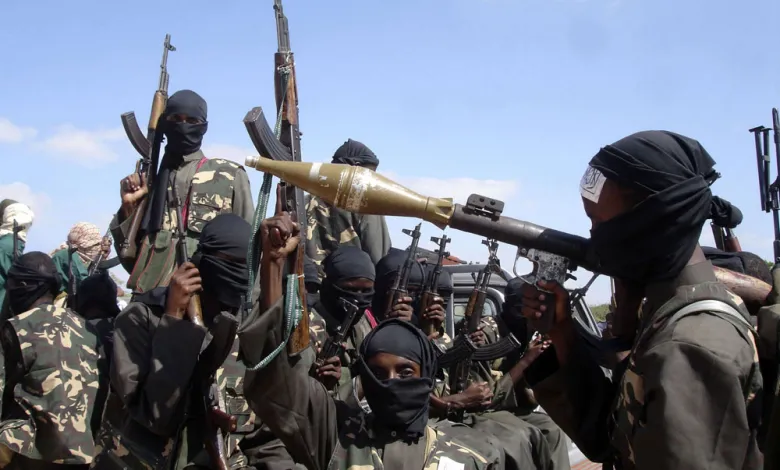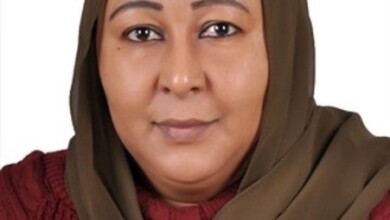Conflict in Sudan: The Role of Iranian-Backed Jihadist Groups
Bahram Abu Ali

Introduction
Sudan is witnessing a profound humanitarian and political crisis as a result of the ongoing conflict between the Sudanese Armed Forces and the Rapid Support Forces. The dimensions of this crisis exceed those of a domestic conflict to overlap with regional and international agendas, with Iranian-backed jihadist groups playing a pivotal role in fueling the conflict and expanding the scope of violence.
The Connection between Jihadist Groups and the Iranian Revolutionary Guard
There is compelling evidence of close links between the jihadist groups present in Sudan and the Iranian Revolutionary Guard. This connection is represented in several aspects:
Supply of drones: Drones play a crucial role in changing the rules of the game in modern conflicts. Multiple reports indicate that the Iranian Revolutionary Guard is supplying jihadist groups in Sudan with advanced drones, enhancing their ability to launch precise and large-scale attacks.
Logistics Support and Training: The Iranian Revolutionary Guard provides logistical support and training to jihadist groups in Sudan, contributing to enhancing their combat capabilities and skills in launching terrorist operations.
Common Ideology: Jihadist groups and the Iranian Revolutionary Guard share an extremist ideology that aims to destabilize the region and spread chaos.
Terrorist Crimes in Halfaya
The massacre of Al-Halfaya, which claimed the lives of dozens of civilian relief workers, is a stark example of the brutality practiced by jihadist groups in Sudan. The cold-blooded execution of these civilians and the mutilation of their bodies, as well as the perpetrators wearing badges resembling those of the Iranian Revolutionary Guard, confirms the involvement of these groups in this heinous crime.
Incitement against Lebanon and Adoption of the Revolutionary Guard’s Slogans
The appearance of jihadist group fighters in videos mourning Hassan Nasrallah and vowing to avenge him confirms their loyalty to Hezbollah and the Iranian Revolutionary Guard. Their adoption of the slogans of the Iranian Revolutionary Guard is an explicit declaration of their loyalty to this terrorist organization.
Classifying Jihadist Groups as Terrorist Organizations
The terrorist acts committed by these groups, which include premeditated murder, torture, and the destruction of public and private property, require their classification as terrorist organizations. This classification is necessary to mobilize the international community to confront this imminent danger that threatens the security and stability of the entire region.
Threat to the Security of the Red Sea
The control of jihadist groups over areas in Sudan, including areas overlooking the Red Sea, poses a direct threat to the security of international navigation and threatens the global economy. The bombing of the UAE Ambassador in Khartoum’s headquarters also confirms the intention of these groups to target Arab countries that oppose terrorism in the region.
The infiltration of jihadist groups into the Sudanese Army wasn’t a new phenomenon. As early as 1989, they seized power through a coup, and it became clear that they were using it to serve their agenda. However, they used a false cover of nationalism to deny their connection to the Army, and at the time we can’t deny that their control over it was partial.
In the early nineties of the last century, they embraced the global terrorist leader Osama bin Laden in the suburb of Soba in Khartoum. They provided safe haven for all terrorists in the world. Then, they waged a fierce war against the rebel Movements in South Sudan by turning it into an ideological jihadist war. This was followed by the wars in Darfur, South Kordofan and Blue Nile.
However, General Yasser Al-Atta, Assistant Commander-in-Chief of the Sudanese Army, worked to empower these jihadist groups within the Army with absolute control. They now completely control its leadership body. Their intention to turn the conflict into a jihadist war represents a very dangerous development.
These groups’ rejection of all negotiation initiatives and raising of the slogan of “Bal bas, i.e Military decisiveness only” confirms their desire to continue the conflict and expand the scope of violence.
Conclusion
The conflict in Sudan requires urgent and decisive intervention from the international community to stop the bloodshed and protect innocent civilians. The international community ought to pressure these extremist groups and remove them from the decision-making center, then invite the Army leadership to sit at the negotiating table and reach a political solution to the crisis. In addition, the international community must work to isolate Iran-backed jihadist groups and prevent them from receiving logistical and financial support.
Recommendations
Designate jihadist groups as Terrorist Organizations.
Impose sanctions on countries that support these groups.
Provide humanitarian assistance to the Sudanese people.
Strengthen international cooperation to confront the terrorist threat





